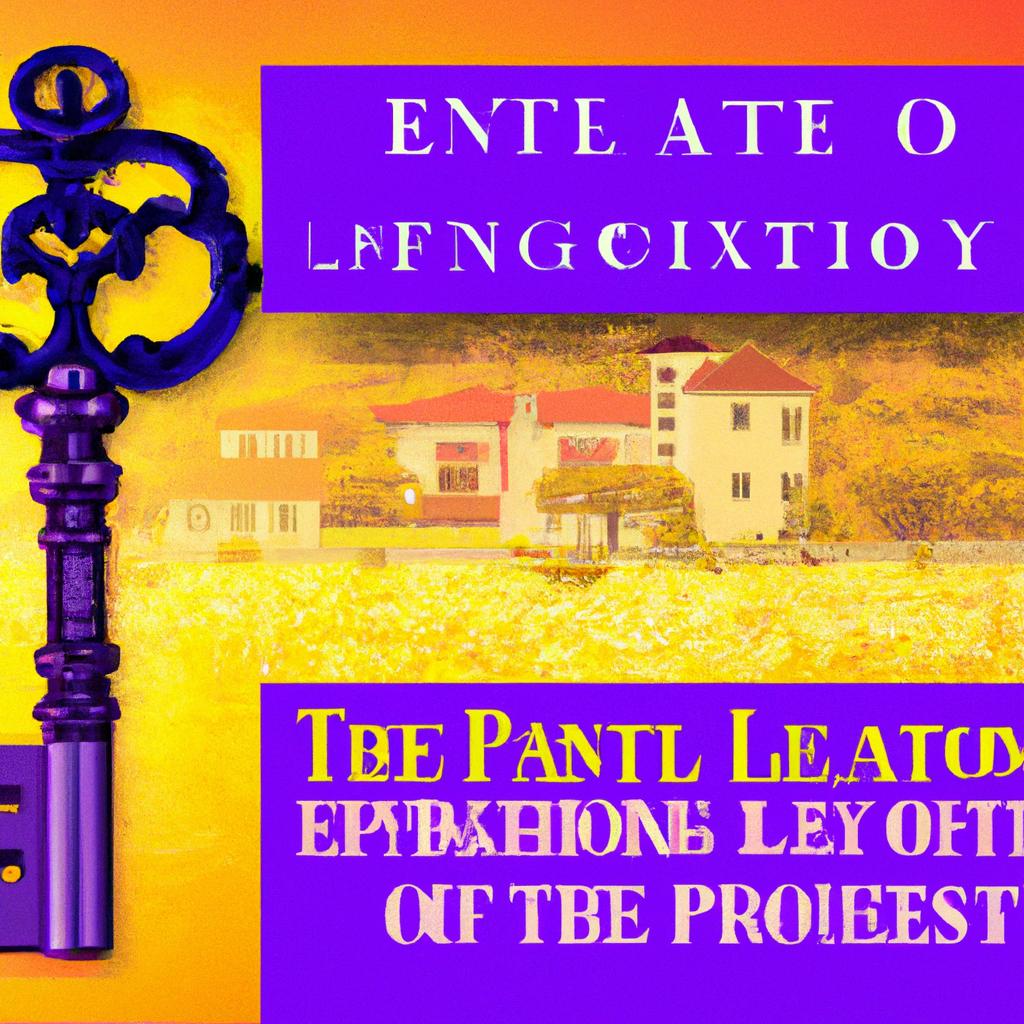Owning a piece of land exclusively and solely without any shared ownership or joint interests is the essence of an estate in severalty. In this article, we will explore the definition of estate in severalty and the implications it has on real estate ownership.
Understanding Estate in Severalty
When an individual holds an estate in severalty, it means that they are the sole owner of a piece of real estate. This type of ownership stands out because it excludes any other parties from having a claim to the property. Here are some key points to help you better understand estate in severalty:
Exclusive and Sole Ownership: The primary characteristic of estate in severalty is that there is only one owner who has complete control over the property.
No Sharing: In contrast to other forms of ownership like joint tenancy or tenancy in common, estate in severalty does not involve shared ownership with others.
Decision-Making Authority: The sole owner of an estate in severalty has the authority to make all decisions regarding the property without needing approval from others.
Estate in severalty provides a clear and straightforward way for individuals to own property without potential conflicts or disagreements that can arise from shared ownership.
Key Characteristics of Estate in Severalty
Estate in severalty is a type of ownership where an individual holds the title to a property exclusively. This means that there is only one owner of the property, without any co-owners or joint tenants. Key characteristics of estate in severalty include:
Single ownership: The property is owned by one individual.
Exclusive rights: The owner has the right to possess, use, and dispose of the property as they see fit.
No right of survivorship: In the event of the owner’s death, the property will pass to their heirs according to their will or state laws of intestacy.
Furthermore, estate in severalty is commonly seen in situations where a single person or entity wants to have full control and decision-making power over a property without any involvement from others. It is important to understand the implications of owning property in severalty, as it can impact inheritance rights and tax considerations.
Benefits of Holding Estate in Severalty
When holding an estate in severalty, there are various benefits that come with this type of ownership. One of the main advantages is the clear and exclusive ownership rights that the sole owner possesses. This means that decisions regarding the property can be made independently without the need for consultation or agreement from others.
Another benefit of holding an estate in severalty is the ability to easily transfer ownership. Since there is only one owner, transferring the property to another party is a straightforward process that does not require the consent of multiple owners. This can be especially beneficial when it comes to estate planning and ensuring that the property is passed on according to the owner’s wishes.
Additionally, holding an estate in severalty can provide greater control over the property and its management. The sole owner has the authority to make decisions regarding maintenance, improvements, and use of the property without having to compromise with other co-owners. This can lead to a more streamlined and efficient decision-making process.
Tips for Managing Estate in Severalty
When it comes to managing estate in severalty, there are a few key tips to keep in mind to ensure everything runs smoothly. One important aspect to consider is ensuring that all legal documents are properly drafted and updated regularly. This includes wills, trusts, and any other estate planning documents that outline how you want your assets to be distributed.
Another tip is to regularly review and update your list of assets to ensure that everything is accounted for. This can help prevent any confusion or disputes among beneficiaries down the line. Additionally, it’s important to communicate openly with your heirs about your estate plan to avoid any surprises or misunderstandings.
Lastly, seeking guidance from a professional such as an estate planning attorney or financial advisor can provide valuable insight and help you navigate the complexities of managing estate in severalty. They can offer personalized advice tailored to your specific situation and goals to ensure that your estate is handled in accordance with your wishes.
In Summary
Understanding the concept of estate in severalty is essential for those navigating the world of real estate. By grasping the unique rights and responsibilities that come with sole ownership, individuals can make informed decisions about their property. Whether you are a first-time buyer or a seasoned investor, having a firm grasp on the concept of estate in severalty can help you make the most of your real estate ventures. Stay informed, stay empowered, and may your journey through the realm of property ownership be a prosperous one.

Unlocking the Power of Estate in Severalty: Understanding the Definition
What is Estate in Severalty?
Estate in severalty, also known as sole ownership, is a type of property ownership where an individual holds complete ownership of a property without any co-owners or joint tenants. This means that the owner has exclusive rights to possess, use, and dispose of the property as they see fit.
Key Points to Understand about Estate in Severalty:
- Only one person owns the property
- No other parties have ownership rights
- Owner has full control over the property
- Owner can sell or transfer the property without consent
Benefits of Estate in Severalty:
Owning property in severalty can offer a range of benefits, including:
- Complete control over the property
- No need for co-ownership agreements
- Ease of transfer and inheritance
- No need for consensus on property decisions
Practical Tips for Estate in Severalty:
When considering owning property in severalty, here are some practical tips to keep in mind:
- Always consult with a real estate attorney to understand the legal implications
- Consider the long-term implications of sole ownership on inheritance and transfer
- Ensure you have a clear understanding of your rights and responsibilities as the sole owner
Case Study: John’s Experience with Estate in Severalty
| Name | Property | Experience |
|---|---|---|
| John | Single-family home | John decided to purchase a single-family home in severalty to have complete control over the property. He found the process straightforward and enjoyed the benefits of sole ownership. |
estate in severalty offers individuals a unique opportunity to have complete ownership and control over their property. By understanding the definition and benefits of sole ownership, individuals can make informed decisions when it comes to property ownership.


